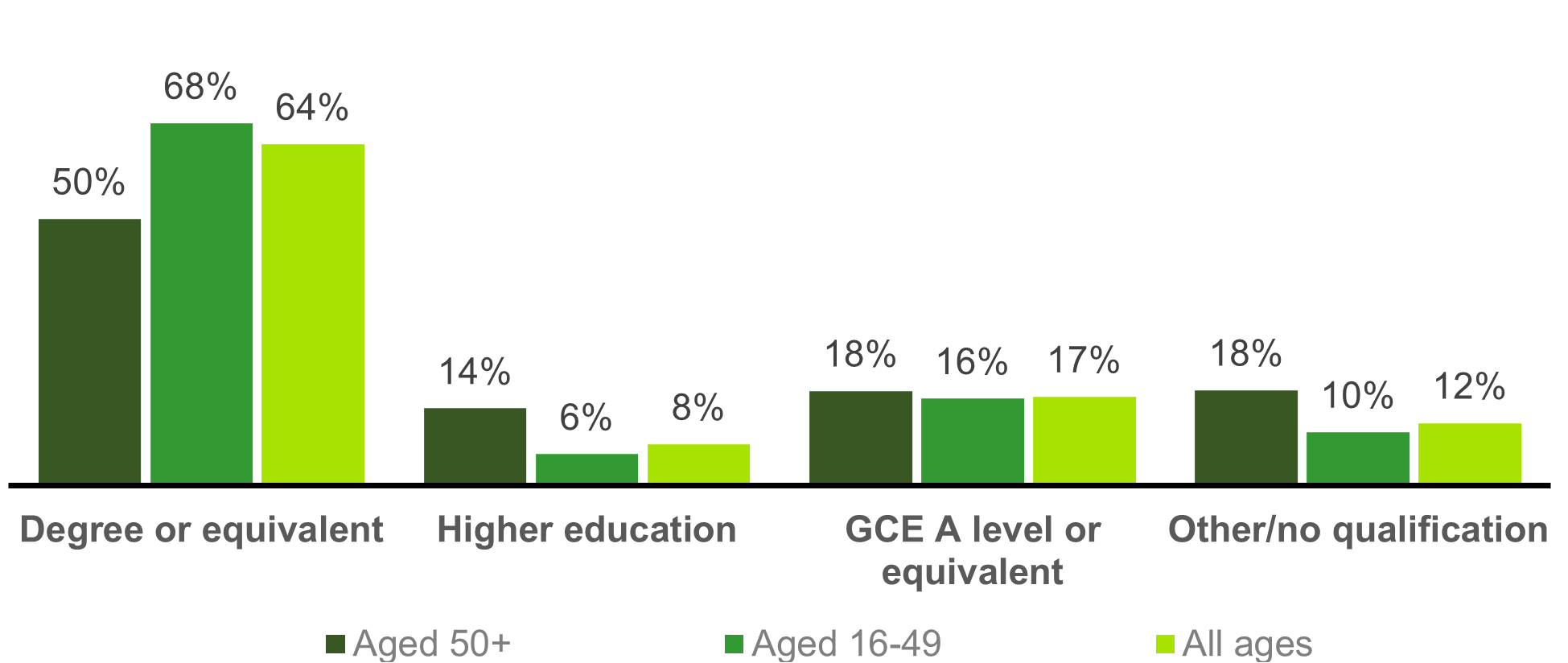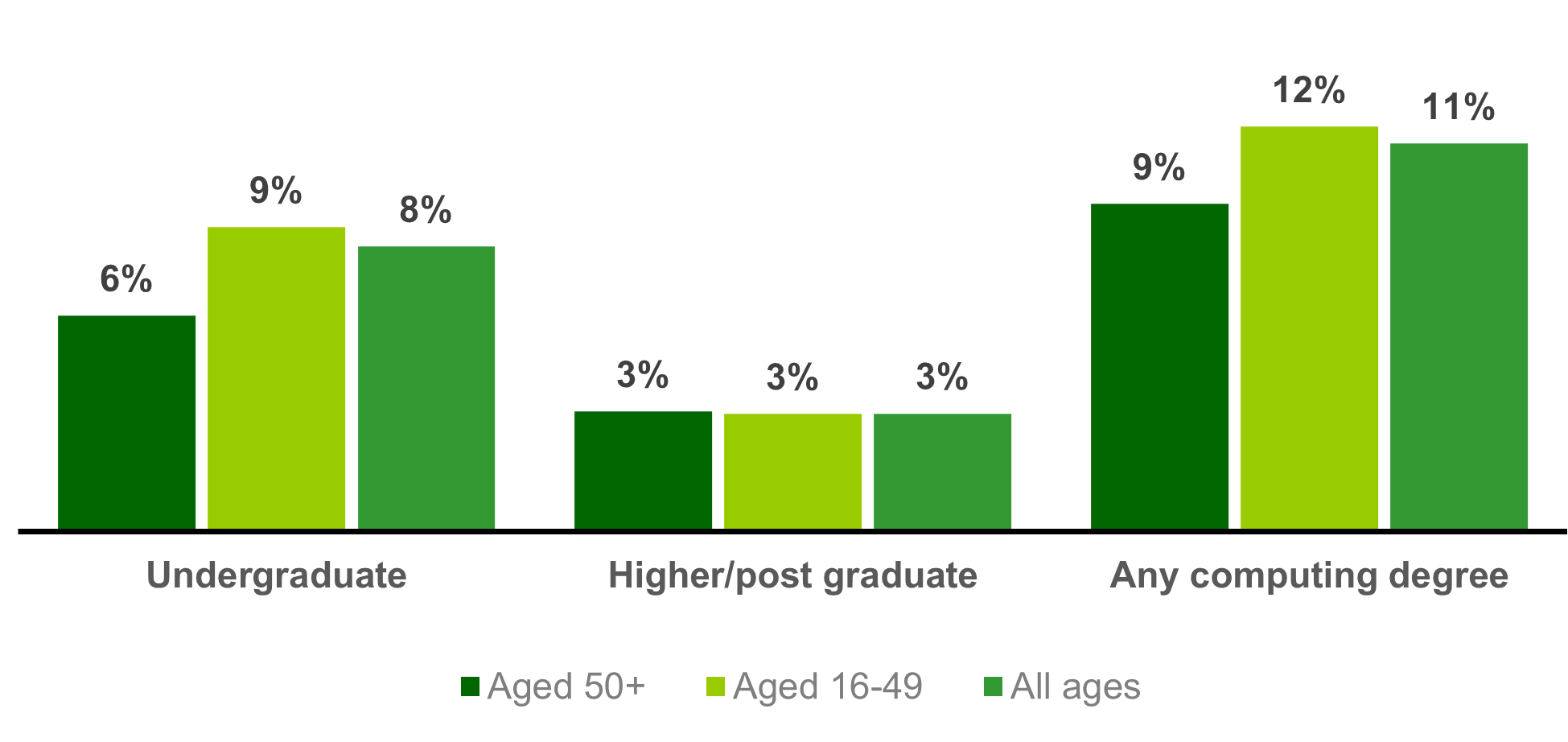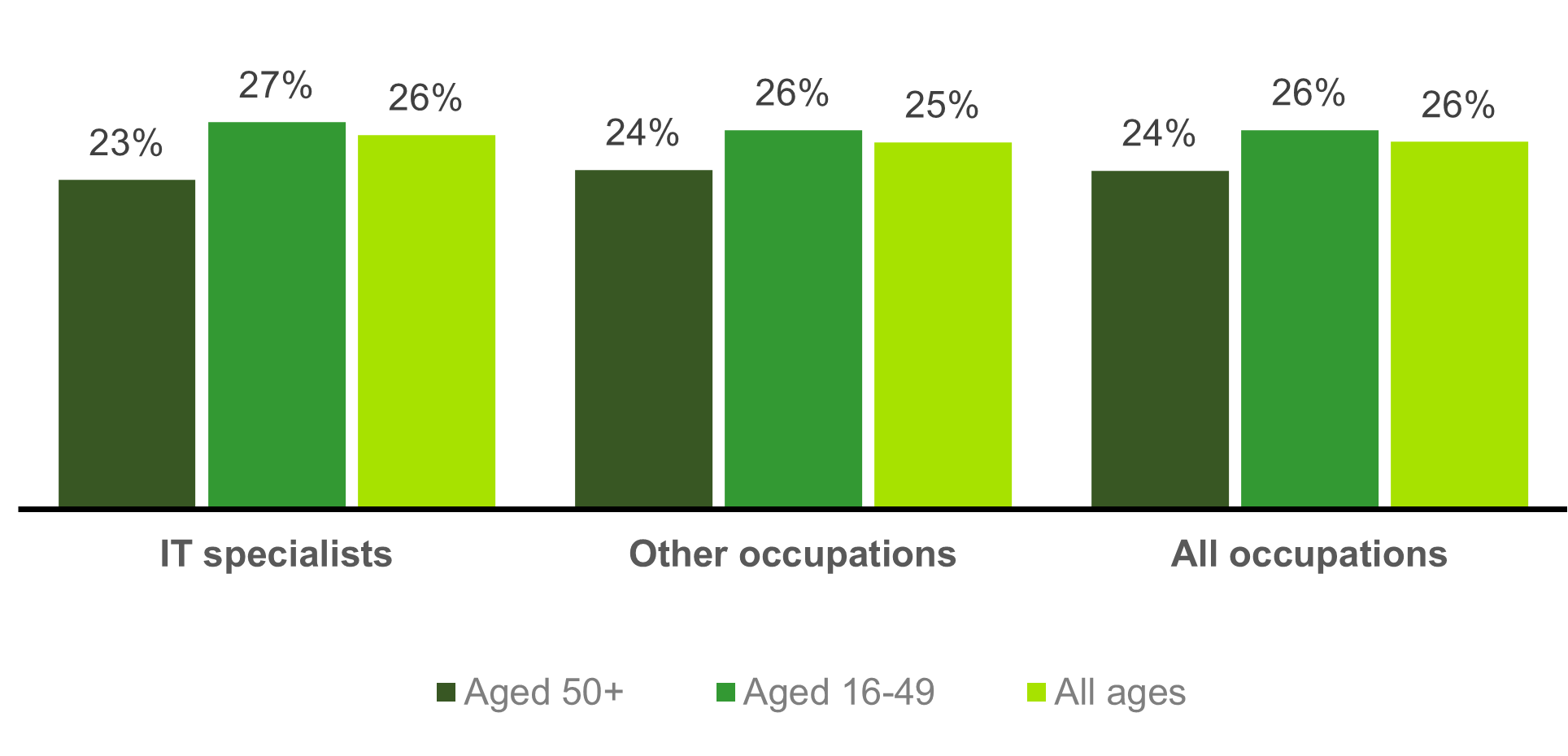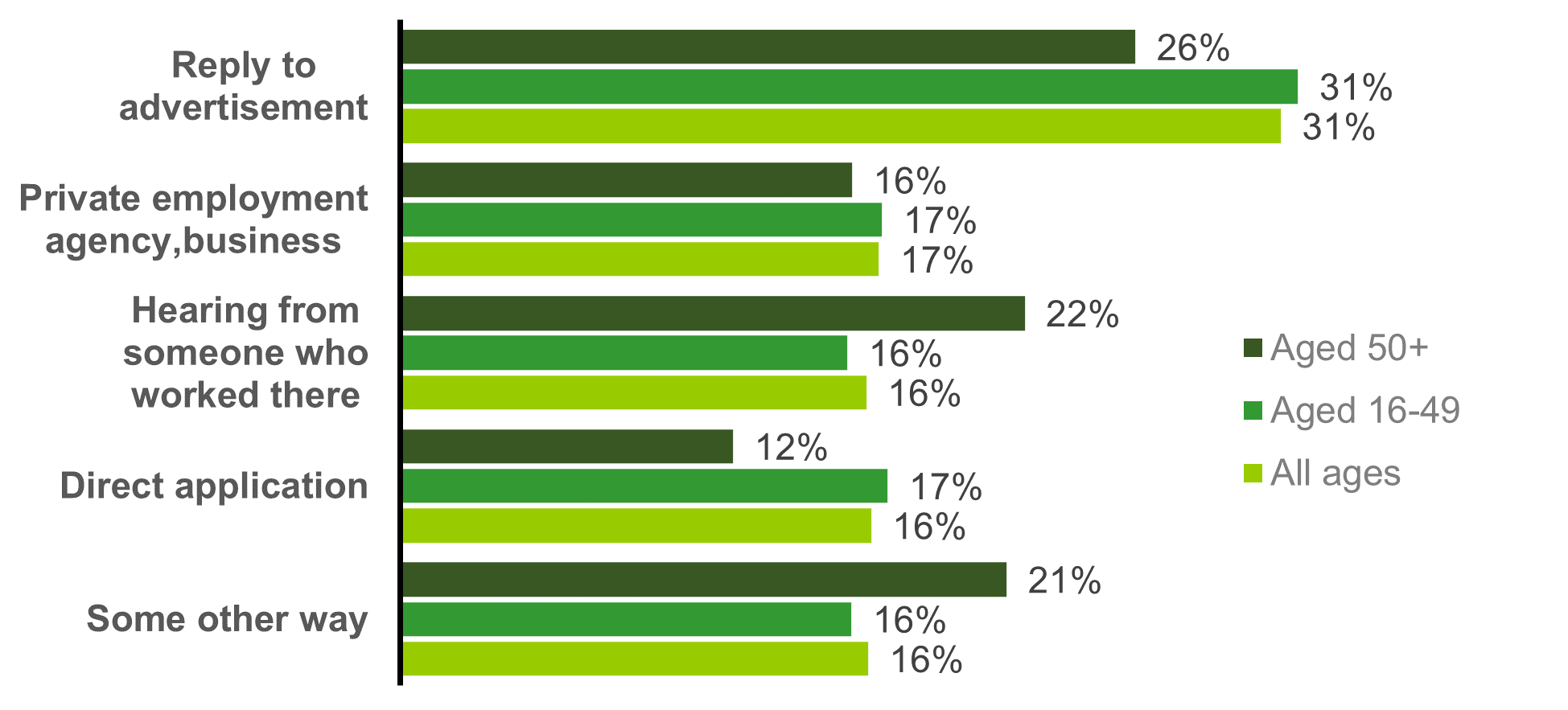Skills
Qualifications held
Older IT specialists are notably less qualified than others working in IT positions and in 2021 whilst 64% of those aged 50+ working in IT jobs were thought to hold some form of HE qualification, the figure for those under 50 was ten percentage points higher (74%).
Within the wider workforce too, younger workers were found more likely to hold some form of HE qualification and in this case the difference was smaller at eight percentage points in this case (with comparison figures of 42% and 50% respectively for those holding HE qualifications).
Level of educational attainment amongst IT specialists (2021)

Source: Analysis of ONS Quarterly Labour Force Survey by BCS
IT specialists aged 50+ are also less likely to hold a degree in an IT-related discipline than those of a younger age working in such occupations, and in 2021, just 9% were thought to have either a higher or undergraduate computing degree compared with 11% of IT specialists aged 16-49.
IT specialists holding computing degrees (2021)

Source: Analysis of ONS Quarterly Labour Force Survey by BCS
Skills development
Despite the arguably high skill / knowledge requirements associated with their work, IT specialists as a whole in the UK appear little more likely than other workers to receive job-related education/training and, on average throughout 2021, 26% of IT specialists stated that they had received some form of job-related education/training in the previous 13 weeks compared with 25% of all workers.
The incidence of job-related education/training was marginally lower amongst older workers – 24% of which received education / training during the previous 13 weeks compared with 26% of ‘younger’ workers as a whole and again this was also the case for older / younger workers in IT positions (with comparison figures of 23% and 27% respectively).
Job-related education / training in the past 13 weeks (2021)

Source: Analysis of ONS Quarterly Labour Force Survey by BCS
Skills sourcing
As with other UK employees, the most common identifiable means of IT specialists[4] securing a job (where stated) during the 2017-21 period was by ‘replying to an advertisement’ (31% of those that had been with their employer for less than one year stating they had secured work in this manner), and this was true for both older and younger IT specialists (26% and 31% respectively).
The next most common means of older IT specialists securing a job was via contacts already working with the employer (22%) and the proportion of this age group securing work in this manner was much higher than that amongst 15–49-year-olds (16%).
Conversely, the proportion of older IT specialists gaining work via direct application was notably lower than that recorded by younger workers in IT positions (i.e. 6% vs 12%) and though this was also true for older workers more generally, the difference in behaviour was less pronounced (i.e. 15% of older workers finding work in this way compared with 20% of those from younger age groups during the 2017-21 period).
Means of finding work amongst IT specialists (2017-2021)

Source: Analysis of ONS Quarterly Labour Force Survey by BCS
[4] Employees / people on government schemes who have been with their current employer for less than one year / 12 months prior to being interviewed for the LFS.













